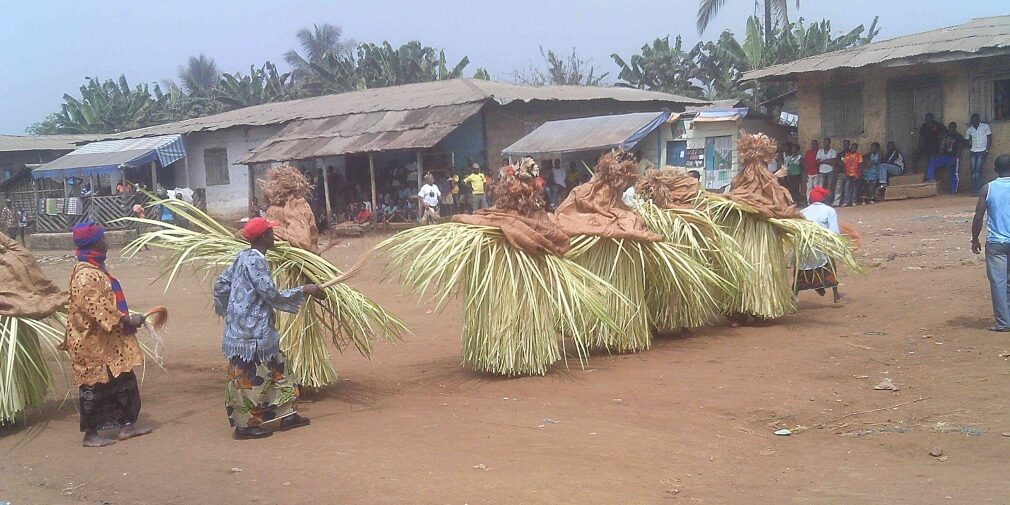Very few Oroko communities are urban or semi-urban. Hence, the majority of Oroko people live in rural areas with usually large villages of over 3000 people. So much of Oroko culture is shared with the ethnic groups that surround them. The Oroko claim to have founded the Ekpe secret society, a type of masonic organization which traditional kept the peace in the Bight of Biafra, and its secret writing system, Nsibidi. The word, nsibidi, is possibly derived from the Oroko word, njibidi, which means “violence” or “chaos”. Today, Ekpe has been popularized by the Ejagham and Efik-speaking peoples of Cameroon and Nigeria, as well as their diasporic communities in the Caribbean, in the form of Abakua. Apart from Ekpe, the Oroko also share several cultural traits with, especially, the Bakweri and Bamboko. The Malle (or Elephant cult) and the Nganya are some of their most visibly shared cultural heirlooms.
Traditional Oroko society was organized according to social castes. At the helm of the society were the Konja or freeborn natives. They possessed the right to own land and participate fully in the affairs of the community. Following that rank were the bafa (sing. mofa), who were either foreigners living among the Oroko or descendants of formerly enslaved people. At the bottom of the social rung were the enslaved, also known as baboďeďi (sing. moboďeďi. Slaves were usually incorporated into their owners family and it was the duty of the master to provide, land and spouses for their slaves.

